The attempts to prevent the East-West Schism had a long tradition, but the end of the 16th century brought particularly advantageous conditions for those efforts. That was when the Constantinople Patriarch, who was the head of the Orthodox churches in the Commonwealth and Moscow, established the Moscow Patriarchate. That meant that Moscow could intervene in the internal affairs of the Crown and Lithuania. At the same time the Constantinople Patriarch turned the Orthodox clergy of the Commonwealth against himself by, for instance, introducing a fee for being ordained a bishop. Consequently, the Polish Orthodox clergy began to seek a different path for their Church.
At the same time appeared the tendency aiming at unification on the Catholic side. The Catholic Church was undergoing intensive reforms, connected with the Council of Trent, whose tone was set by Jesuits, who had significant influence on the Polish king and the overall course of the state affairs. Their most eminent representative, Piotr Skarga, penned a work devoted to the unification of churches entitled O rządzie i jedności Kościoła Bożego pod jednym pasterzem [on the administration and unity of God’s Church under one shepherd]. It was read by Sigismund III Vasa. Also fearing that Moscow would subordinate the Polish Orthodox Church to itself, the king became a proponent of the union of the Churches. At the same time Jesuits established a network of schools offering a high level of education, which became highly popular with the Orthodox nobility. Those schools built the positive image of the Catholic Church which in time resulted in the Orthodox nobility becoming more favorable to Rome.
Under those circumstances, the bishops who supported the union began negotiations with the king and Catholic hierarchs. In 1595 representatives of the Polish Orthodox clergy went to Rome, where they made a confession of faith before the Pope and accepted the union’s conditions, which stipulated for retaining the rites, calendar, and hierarchy, and also subordination to the Pope. The Council of Brest was soon called, where the act of union was signed, thus establishing the church known as the Greek Catholic or Uniate Church. A minority of the clergy did not join the union, remaining in the Orthodox Church, from then on called disuniates.

